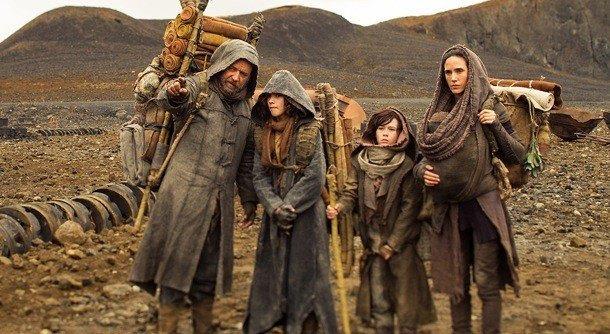 Director Gareth Evans not only brings us a better film in the sequel, but schools us all on how to shoot a proper martial arts film. ‘The Raid 2: Berandal’ is a film worth seeing based on the fight choreography alone. At the risk of sounding cliché, it is unlike anything you’ve ever experienced on screen (and more so than its predecessor).
Director Gareth Evans not only brings us a better film in the sequel, but schools us all on how to shoot a proper martial arts film. ‘The Raid 2: Berandal’ is a film worth seeing based on the fight choreography alone. At the risk of sounding cliché, it is unlike anything you’ve ever experienced on screen (and more so than its predecessor).
Rama (Iko Uwais) goes undercover to develop a case against the gangs, crime families, and corrupt police officers alike connected to the tenants that occupied the very apartment he was instructed to bring down in ‘The Raid: Redemption’.
When people state that visual or special effects in a film are “out of this world”, it is usually met with apathy and sarcasm as the phrase is overused. Describing the fight choreography in this film with that phrasing, however, is completely justified.
Firstly, many of the actors and stunt people performing these bouts use choreography different from each other. Typically, we see fighters using the same choreography as their opponents. However, with ‘The Raid 2: Berandal’, this is not the case. It’s a refreshing thing to notice onscreen that not all techniques are created equal. Each person has a unique way of using their whole bodies or things surrounding them in a room. There is a scene in which one man gives his opponent his own version of “batting practice”. (Basically, this man puts “The Bear Jew” from ‘Inglorious Basterds’ to shame.) His partner-in-crime is a woman whose use of two hammers is viciously extraordinary.
Secondly, the camera in each of these fight sequences, moves in an untraditional manner. Not only are these scenes shot in many different angles, but the viewers are given enough time to process what’s going on in each move and counterattack before moving on to the next shot as opposed to relying on shaky cam and quick cuts. Another small, but considerate thing that ‘The Raid 2: Berandal’ does is that once an opponent is knocked down, there’s time allotted for them to recover before they get back up to help their fellow attackers fight their opponents. Although this small detail will most likely be overlooked, it’s a bit of a shift away from the typical fight sequences in Hollywood, featuring a more realistic take on how fighting scenes might play out naturally.
While ‘The Raid 2: Berandal’ features gratuitous violence (more than the first film), most of it has a purpose. Our hero, Rama, has a 10-min kitchen brawl with someone that could be his equal physically that also takes a slight turn for the psychological. The fighting here starts out with Rama’s opponent playing little mind games with Rama in his short counterattacks. The two men aren’t quick to start, but more divisive in how they approach each other. It’s a nod back to intelligent fighting in classic action films (i.e., Luke Skywalker and Lord Vader’s fight in ‘Empire Strikes Back’).
Besides the excellent fighting, ‘The Raid 2: Berandal’ has a very interesting story with a subplot that plays out very much like a Greek tragedy. It is a film that resonates much with ‘The Godfather’: a son wanting a higher position within his family, threats of mob wars, and back dealings among crime families and law enforcement. It’s a familiar story, but with a martial arts edge.
The acting is also very well done, especially from Iko Uwais and Arifin Putra (Rama and Uco, respectably). Uwais, specifically in scenes regarding his family, approaches the role in a very dedicated manner. Although most of his scenes call for some form of anguish, it’s a scene about his son where the audience can truly appreciate the actor’s range.
Although Uco’s character development is a little rushed (despite the film being almost 2 and a half hours), Putra, in showing the transformation in his character, gives a great performance as the foolishly ambitious, young man desperately trying to prove his worth as a leader to his father.
‘The Raid 2: Berandal’ stands firmly on its own with a strong, well-structured story and combat action sequences that films cannot yet match.
Jim’s Rating: 8.7/10






